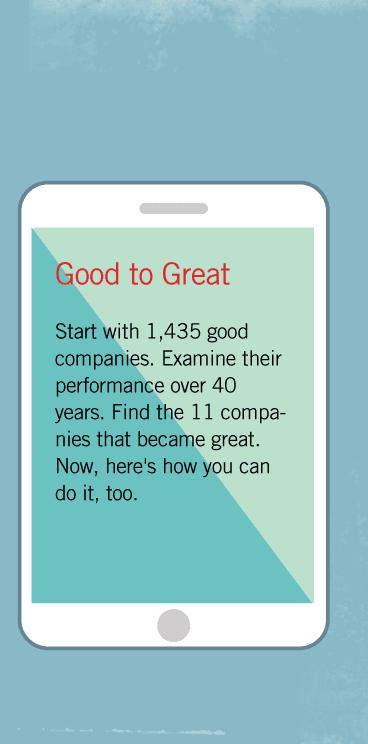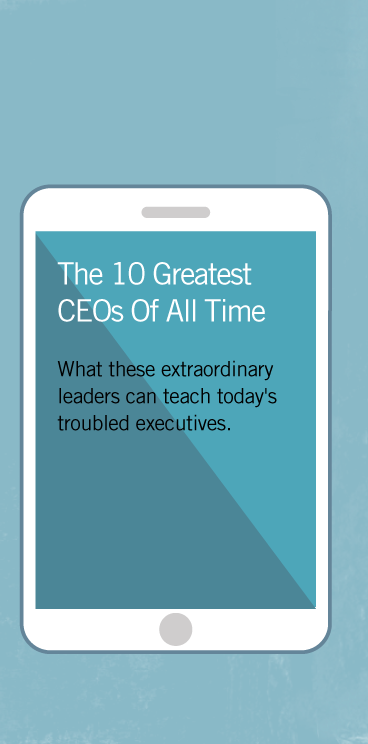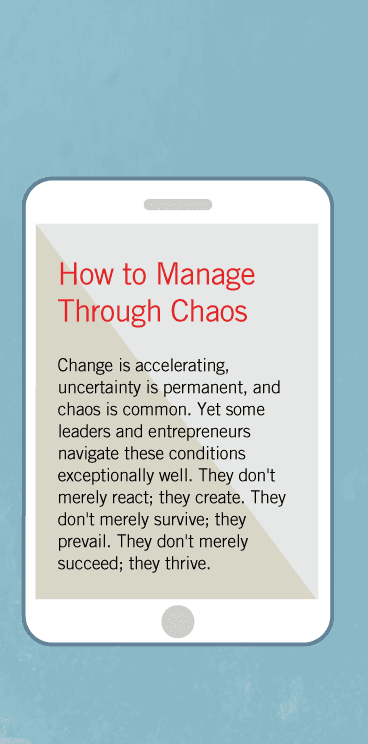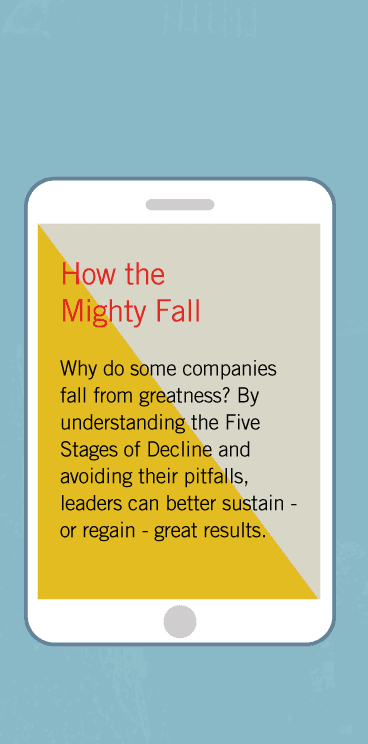Manager's Journal: High Returns Amid Low Expectations
Thousands of firms suddenly enjoy a wonderful advantage: Low expectations. It’s a gift of circumstance highly correlated with the presence of leaders who take companies from good to great.
Take two contrasting cases, the first being Michael Armstrong at AT&T. When Mr. Armstrong became CEO of AT&T in late 1997—the height of the boom—he wowed the board, the media and investors with his charismatic energy. This was a man who would lead! At last, AT&T had found its savior, the man who could free the company from the bondage of long distance and take it into the digital age. Business Week ran a photo of Mr. Armstrong smiling triumphantly on his ascension, while his predecessor, Robert Allen, looked beaten and worn. The magazine quoted Mr. Armstrong as saying, “I’m absolutely convinced that this company is going to lead the fastest-changing industry in the world.”
The expectations that greeted Mr. Armstrong were so high that the stock shot up 30% within three months. And to his credit, Mr. Armstrong surprised everyone by initially exceeding expectations. He cut costs, increased profitability in wireless and improved international service. The stock soared again. In just 15 months, Mr. Armstrong’s presence nearly doubled the share price—an impressive performance.
It turns out that the same sky-high expectations that fueled the stock in the first place ultimately became the seeds of an equally dramatic decline. Fifty-nine years old at the start of his tenure, Mr. Armstrong had less than six years to rebuild AT&T into an enduring great company. On the surface, this might look like plenty of time, but consider: It took Jack Welch over eight years in office before GE’s stock began to significantly and consistently outperform the stock market. Similarly, it took Lou Gerstner over six years to get IBM’s net profit margins back into the range the company enjoyed during its previous era of greatness.
In our study of what it takes to turn good companies into great ones, we found that it took an average of four years to crystallize a coherent strategic concept—and seven years of intense effort below the radar screen before a company would show a significant and sustained leap to great results.
Given these statistics, a more realistic aim would have been for Mr. Armstrong to use his short tenure to set the conditions for his successor to preside over greatness in the next generation. Unfortunately, nearly everyone’s expectations in 1997 were that Mr. Armstrong could defy the laws of corporate physics and create an overnight transformation.
These expectations, in turn, led to a series of big, lurching steps. Mr. Armstrong spent $100 billion to buy Telecommunications Inc. and Media One, looking for a single-step solution to the declining long-distance business. He took a sledgehammer to AT&T’s culture, trying to pound it overnight into a culture of discipline. He cut 18,000 jobs in one year, to quickly bolster the bottom line. But the acquisitions didn’t work out as well as hoped, the sledgehammer drove away many of AT&T’s best executives and the cost cutting did not solve the company’s fundamental problems. Between 1999 and 2001, AT&T stock dropped nearly two-thirds, or about 60% behind the Dow Jones Industrial Average and the Standard & Poor’s 500 indexes.
To be fair, Mr. Armstrong faced a series of challenges that Jack Welch or Lou Gerstner likely could not have fully mastered in anything less than five to 10 years. Not only did he face a rapidly declining core business, but unlike Messrs. Welch and Gerstner, he found himself atop a deeply mediocre enterprise. One might even suggest that AT&T’s problems were so acute and its mediocrity so deeply embedded that no CEO could turn it into a great company, ever.
But the contrasting case of David Maxwell disproves that notion. Mr. Maxwell faced an even more acute crisis at an equally mediocre company. When he became CEO of Fannie Mae in 1981, in the middle of a recession, it was losing $1 million every business day with $56 billion of mortgage loans under water. With a negative 6% spread on its portfolio, and no end in sight, most analysts saw nothing but a bleak future for Fannie Mae, perhaps even extinction.
The remarkable thing about Mr. Maxwell’s leadership is not just that he saved the company, which he did brilliantly, but that in the process he turned a 50-year-old quasi-government bureaucracy into a truly great organization. He did not step forth as a heroic savior with a ready-made program. No big acquisitions to buy a breakthrough, no radical restructuring to immediately bolster the bottom line, no charismatic visionary leadership to wow the media, no hoopla to bolster the stock. He simply got the right people on the bus (and the wrong people off the bus), quietly redesigned the entire business model into a machine that could make money independent of interest-rate fluctuations and spent 10 years shaping a culture of discipline.
Mr. Maxwell understood that building a great company is like pushing a heavy flywheel: It requires a huge amount of effort just to get the thing moving, and many additional pushes to generate significant momentum. But with persistent effort, accumulating momentum one turn upon another, a company eventually gets results that can last.
During Mr. Maxwell’s first four years, in fact, Fannie Mae stock gained almost no ground relative to the general stock market and it took fully six years for return on equity to climb back into solid double digits. In the long run, however, the results were spectacular. A dollar invested in Fannie Mae in 1981 and held to 2000, dividends reinvested, multiplied over 100 times—a performance substantially better than corporate superstars GE, Coke and Merck over the same period, and six times better than the general stock market.
When I asked Mr. Maxwell how he resisted taking actions that would drive up the share price in the short term, but that might fail to create a great company in the long run, he seemed perplexed, as if the question had never occurred to him. I pressed further, pointing out that I had repeatedly heard executives complain that the modern pressures of Wall Street make it difficult to build greatness for the long term. Mr. Maxwell thought about this for a moment, and then pointed out that he had one huge advantage: No one expected much from Fannie Mae.
And that brings me to the central issue. The point is not so much about the striking differences between David Maxwell and Michael Armstrong, but about the differences in expectations that each faced, about how those expectations led to radically different outcomes. Certainly, Mr. Armstrong added fuel to the fire that ultimately consumed him, but the board, the media and our misguided belief in savior CEOs are equally to blame for creating unrealistic expectations. Indeed, if Mr. Armstrong had projected Mr. Maxwell’s low-key, step-by-step manner, it is unlikely he would have even been hired, especially in the bull market raging in 1997.
The question is whether today’s leaders will seize this time of lowered expectations to turn the flywheel like David Maxwell, or if they will fall into the doom loop that befell Michael Armstrong. If they choose well, we will not be reading about their heroics in the next 12 months, but we will certainly appreciate their efforts down the road when their legacy becomes clear. On the evidence of a 100-fold increase for investors and a great company that makes a difference in people’s lives, it’s just fine to lead in the manner of David Maxwell. The best executives will use this reprieve from the tyranny of the bull market to do just that.






